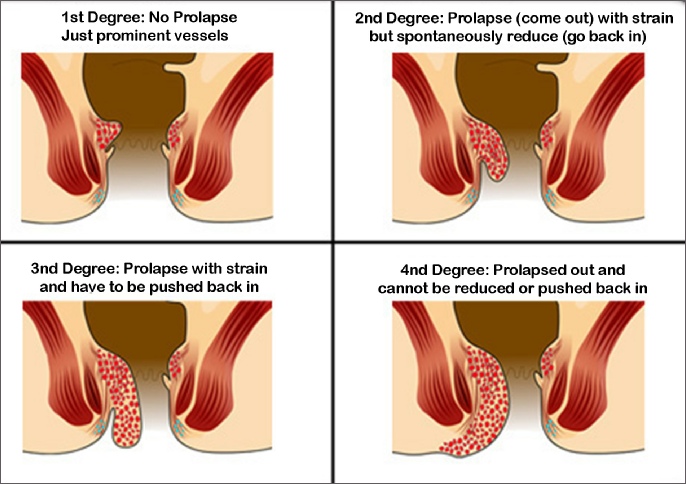Hemorrhoidectomy in Czech Republic
Search and Compare the Best Clinics and Doctors at the Lowest Prices for Hemorrhoidectomy in Czech Republic

Find the best clinics for Hemorrhoidectomy in Czech Republic
No clinics available
Ukraine offers the best prices Worldwide
Price: $ 170

- Home
- Czech Republic
WHY US?
At Medijump, we're making medical easy. You can search, compare, discuss, and book your medical all in one place. We open the door to the best medical providers worldwide, saving you time and energy along the way, and it's all for FREE, no hidden fees, and no price markups guaranteed. So what are you waiting for?

Free

Best Price

Widest Selection

Risk-Free
What you need to know about Hemorrhoidectomy in Czech Republic

Hemorrhoidectomy is a surgical procedure to remove severe hemorrhoids or piles (swollen blood vessels inside or around the rectum and anus). This procedure offers a long-term solution for those who suffer from hemorrhoids, especially for those whose hemorrhoids are large, very painful, or bleeding.
What does the Procedure Involve?
Hemorrhoidectomy may be performed under general anesthetic (you’re put to sleep during the surgery) or local anesthetic. The surgery starts by gaining access to the anus, then the hemorrhoids are gently cut out using surgical instruments, such as a laser or surgical scissors. Then the wounds may be sealed with sutures or left open.
How Long Should I Stay in Czech Republic?
You should be able to leave the hospital on the same day. However, you need to stay in Czech Republic for around 14 more days or until your doctor says it is okay for you to travel as you should not sit for a long period of time during the recovery period.
What's the Recovery Time?
You may need about one or two weeks off work to recover, but you should not do any strenuous activities such as intense exercises and heavy lifting for about 3 to 6 weeks. The total recovery period may take as long as 6 weeks.
What About Aftercare?
Before you go home after the surgery, your surgeon will give you directions to care for yourself at home, such as taking stool softeners to reduce straining during a bowel movement, taking a Sitz bath, and eating a fiber-rich diet. You need to attend a follow-up checkup to monitor your condition, but you can do it with your local doctor. To prevent hemorrhoid from happening again, you should not delay using the toilet, do not spend too much time on the toilet (such as reading or using your phone in the toilet), and try to eat a diet full of green vegetables, fruit, and 100% whole grains.
What's the Success Rate?
Hemorrhoidectomy is very common and generally safe, but it carries some side effects and risks, pain, bleeding, infection, difficulty urinating, loss of control of the rectal sphincter, damage or narrowing of the anal canal, and allergic reaction to the anesthetic.
Are there Alternatives to Hemorrhoidectomy?
Some cases of hemorrhoids can be treated with over-the-counter medicines as well as a healthy diet and lifestyle. However, if you need further treatment, the alternatives to hemorrhoidectomy are rubber band ligation, sclerotherapy, coagulation, and hemorrhoid stapling. Make sure to discuss with your doctor the best option for your case.
What Should You Expect Before and After the Procedure
Before hemorrhoidectomy, you may experience uncomfortable and painful symptoms that interfere with your daily life. After the surgery, you will no longer experience any of the symptoms and your quality of life will be significantly increased.
Whilst the information presented here has been accurately sourced and verified by a medical professional for its accuracy, it is still advised to consult with your doctor before pursuing a medical treatment at one of the listed medical providers
No Time?
Tell us what you're looking for and we'll reachout to the top clinics all at once
Enquire Now

Popular Procedures in Czech Republic
Prices Start From $961

Prices Start From $133

Prices Start From $1

Prices Start From $773

Recommended Medical Centers in Czech Republic for procedures similar to Hemorrhoidectomy

- Interpreter services
- Translation service
- Religious facilities
- Medical records transfer
- Medical travel insurance
- Health insurance coordination
- TV in the room
- Safe in the room
- Phone in the room
- Private rooms for patients available

- Interpreter services
- Translation service
- Religious facilities
- Medical records transfer
- Medical travel insurance
- Health insurance coordination
- TV in the room
- Safe in the room
- Phone in the room
- Private rooms for patients available

- Interpreter services
- Translation service
- Religious facilities
- Medical records transfer
- Medical travel insurance
- Health insurance coordination
- TV in the room
- Safe in the room
- Phone in the room
- Private rooms for patients available
Hemorrhoidectomy in and around Czech Republic
The Czech Republic is a landlocked country in Central Europe and it has a rich and eventful history, as well as amazing attractions. From medieval towns and magnificent castles to picturesque national parks and relaxing spa resorts, it has a lot to offer. The country also boasts top-quality healthcare and is emerging as a popular medical tourism destination. Medical procedures in the country are performed with the latest technology and techniques. The medical professionals are highly qualified, well trained, and internationally recognized. Besides, the cost of medical procedures in the country is extremely competitive. Medical tourists can make significant savings compared to most other countries in Europe. Cosmetic surgery is particularly popular among international medical tourists.
Popular Parts of Czech Republic
Prague is the capital and is popular for its fine dining, eccentric nightlife, and wonderfully preserved medieval buildings with Gothic architecture, such as Prague Castle, the 14th-century Charles Bridge, and the Astronomical Clock. Along with Prague, Ceský Krumlov and Brno are frequently visited by tourists as well.
Weather and Climate in the Czech Republic
Due to its location, the Czech Republic has a mostly temperate climate. Extreme weather is rare, but the summers can get hot and the winters cold. Summer starts in June and the days can be scorching hot. The average temperature is around 26°C, but in recent years, it tends to rise to 37°C. Winter, from November to March, can get rather cold. The average temperatures drop to around 2°C during the day and -2°C at night, with some snowfall and rain. Spring (March-May) and autumn (September – October) have beautiful weather.
Getting around in the Czech Republic
Václav Havel Airport Prague is the main airport where international visitors fly into and out of the Czech Republic. It serves numerous flights to many cities around Europe and Asia, including London, Moscow, Dubai, and Seoul. The Czech Republic has an affordable and reliable public transport system. Domestic flights are available, but rarely necessary. The rail network is affordable and very comprehensive, covering almost every city and town in the county. The bus also has extensive coverage throughout the country. Public transport within cities is also excellent. In major cities, you can opt for the metro, tram, bus, or trolleybuses. Taxis are widely available and are metered, but the fares are higher at night.
Tourist Visas in the Czech Republic
Nationals of all EU countries do not need a visa to visit and stay in the Czech Republic. The country is a part of the Schengen area, which means citizens of around 62 countries can stay for up to 90 days without a visa. These visa-exempt countries include Australia, Canada, the US, and South Korea. Citizens of other countries are required to apply for a visa before visiting the country. Those who want to receive medical care should obtain a Czech Republic Visa for Medical Purposes.
Additional Information
- Local Currency: Czech Koruna/Czech Crown (CZK) is the currency of the Czech Republic. 1 USD is equivalent to 22.98 CZK. Note that the euro is not widely accepted in the country.
- Money & Payments: ATMs are widespread around the Czech Republic. Major credit cards, such as MasterCard and Visa, are accepted for many types of transactions, but you may need to pay in cash for smaller amounts. Tipping is expected, especially in restaurants. Tip at least 10% of the bill.
- Local Language: The official and most commonly spoken language is Czech, but Slovak is widely spoken as well. Many people, particularly in major cities, can speak English and German.
- Local Culture and Religion: Most of the population is religiously unaffiliated and does not believe in God. However, Christianity is the largest religion. Judaism, Islam, Buddhism, and Paganism are also practiced by a small percentage of the population.
- Public holidays: New Year’s Day, Easter Monday, Liberation Day, Sts Cyril & Methodius Day, Jan Hus Day, Republic Day, and Czech Statehood Day are some of the most important public holidays in the Czech Republic.
Popular Searches
- Plastic Surgery in Thailand
- Dental Implants in Thailand
- Hair Transplant in Thailand
- Breast Augmentation Thailand
- Gastric Sleeve in Thailand
- Gender Reassignment Surgery in Thailand
- Laser Hair Removal in Bangkok
- Botox in Bangkok
- Dermatology in Bangkok
- Breast Augmentation in Bangkok
- Coolsculpting in Bangkok
- Veneers in Turkey
- Hair Transplant in Turkey
- Rhinoplasty in Turkey
- Stem Cell Therapy in Mexico
- Rhinoplasty in Mexico
- Liposuction in Mexico
- Coolsculpting in Tijuana
- Rhinoplasty in Korea
- Scar Removal in Korea
- Gastric Sleeve in Turkey
- Bone Marrow Transplant in India
- Invisalign in Malaysia
- Plastic Surgery in the Dominican Republic
- Tummy Tuck in the Dominican Republic
- Plastic and Cosmetic Surgery in Poland
- Rhinoplasty in Poland
- Hair Implant in Poland
- Dental Implants in Poland
- IVF in Turkey